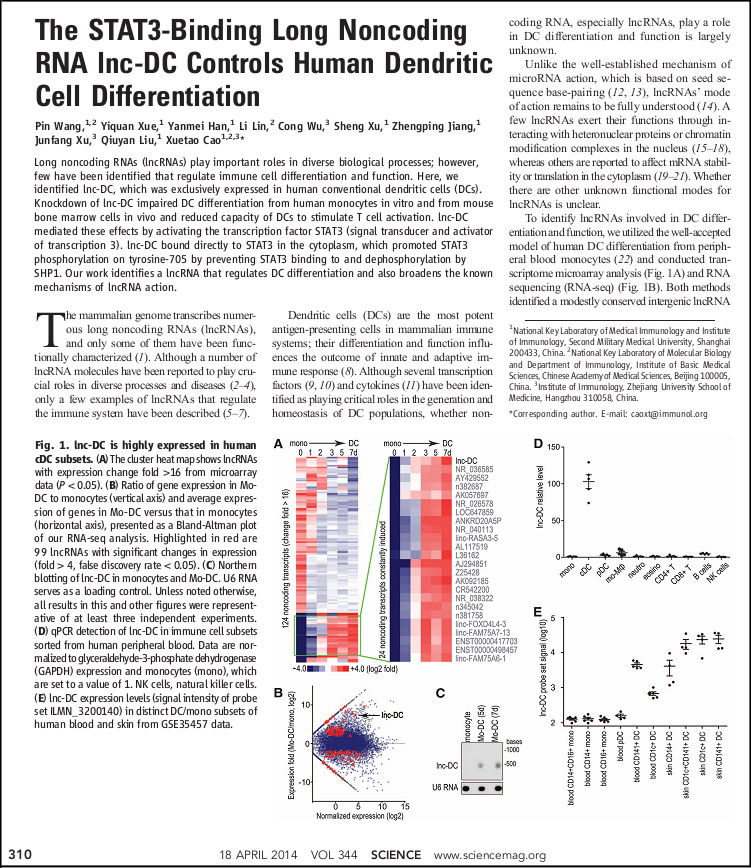Professor Xuetao Cao has published a new paper in 《Science》
Source:CSI
2014-04-25

Abstract:
Long noncoding RNAs (lncRNAs) play important roles in diverse biological processes; however, few have been identified that regulate immune cell differentiation and function. Here, we identified lnc-DC, which was exclusively expressed in human conventional dendritic cells (DCs). Knockdown of lnc-DC impaired DC differentiation from human monocytes in vitro and from mouse bone marrow cells in vivo and reduced capacity of DCs to stimulate T cell activation. lnc-DC mediated these effects by activating the transcription factor STAT3 (signal transducer and activator of transcription 3). lnc-DC bound directly to STAT3 in the cytoplasm, which promoted STAT3 phosphorylation on tyrosine-705 by preventing STAT3 binding to and dephosphorylation by SHP1. Our work identifies a lncRNA that regulates DC differentiation and also broadens the known mechanisms of lncRNA action
Editor's summary:
L[i]nc to Dendritic Cell Activation
Long noncoding RNAs (lncRNAs) are important regulators of gene expression, but whether they are important regulators of the immune system is poorly understood. Wang et al. (p. 310) identify a lncRNA expressed exclusively in human dendritic cells (DC), called lnc-DC, that is required for optimal DC differentiation from human monocytes and that regulates DC activation of T cells. Lnc-DC interacts with the transcription factor STAT3, which is also required for DC development and function, to prevent interaction with and to block dephosphorylation by tyrosine phosphatase SHP1.
Paper linked:
http://www.sciencemag.org/content/344/6181/310.abstract
http://www.ncbi.nlm.nih.gov/pubmed/24744378


